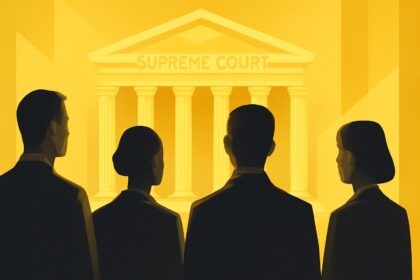Trump Administration Narrows Fed Chair Candidates to Five
After extensive interviews lasting up to two hours each, Treasury Secretary Scott Bessent has reduced the list of Federal Reserve chair candidates from 11 to five, according to senior Treasury officials. The final nomination could come as early as January, though the candidate may initially be nominated as a Fed governor before assuming the chairmanship.
Finalists Include Sitting Fed Officials and External Experts
The current shortlist includes Vice Chair for Supervision Michelle Bowman and Governor Christopher Waller, both sitting members of the Federal Reserve. The external candidates are Kevin Hassett, director of the National Economic Council; former Fed Governor Kevin Warsh; and Rick Rieder, BlackRock’s Chief Investment Officer for Global Fixed Income. Treasury plans to conduct a second round of interviews with these five candidates, involving Bessent, two senior Treasury officials, and two senior White House officials. However, the process may extend into late November due to Bessent’s commitments at the World Bank/IMF meetings and an extended trip to Asia with President Donald Trump.
Nomination Strategy and Timing
The final decision rests with President Trump, who is expected to receive a smaller list from Bessent after the upcoming interviews. It is anticipated that the nominee will first be appointed as a Fed governor before being named chair. This approach is influenced by term expirations: outgoing Chair Jerome Powell’s governor seat expires in May with only two years remaining, whereas another seat offers a full 14-year term, providing greater tenure stability. Officials emphasize that this nomination strategy is not yet finalized, and alternative approaches remain possible.
A More Transparent yet Controversial Selection Process
Unlike previous administrations, the Trump administration has maintained a relatively open process by publicly announcing candidates as the list evolves. However, the administration’s critical stance on Fed policy has introduced significant tension. President Trump has repeatedly called for sharp rate cuts and has threatened to remove Chair Powell. Notably, the administration’s firing of Fed Governor Lisa Cook—based on allegations she denies—has been legally challenged and is pending before the Supreme Court. These actions have intensified concerns about the Fed’s independence, placing additional scrutiny on the upcoming chair appointment.
Bessent’s Criteria and Rick Rieder’s Strong Showing
Treasury officials revealed that Secretary Bessent is seeking a candidate open to innovative approaches in monetary policy and Fed governance, with expertise spanning economics, banking regulation, and management. Bessent recently authored a critique of the Fed, advocating for a review of its policy tools, structure, and mission, highlighting concerns over the Fed’s expansion and mission creep. Among the finalists, Rick Rieder has notably impressed Bessent. As BlackRock’s fixed income CIO, Rieder is a recognized voice in financial markets, known for his analysis of bond markets and Fed policy. Unlike the other candidates, Rieder has never worked at the Fed, which may be viewed as an asset in bringing a fresh perspective.
FinOracleAI — Market View
The narrowing of the Fed chair candidate list by Treasury Secretary Bessent signals a methodical yet politically nuanced selection process under the Trump administration. The inclusion of both Fed insiders and external experts reflects a balancing act between continuity and reform.
- Opportunities: A candidate open to revising the Fed’s size and tools could lead to streamlined monetary policy and reduce market uncertainty.
- Risks: Political interference, as evidenced by recent attempts to remove Fed officials, may undermine central bank independence and market confidence.
- Rick Rieder’s market expertise and outsider status could bring fresh perspectives to the Fed’s approach to fixed income and monetary policy.
- The staggered nomination approach may complicate the transition and create short-term leadership ambiguity at the Fed.
Impact: The Fed chair nomination process remains closely watched by markets due to its implications for U.S. monetary policy direction and central bank independence. The final choice will likely influence interest rate policy and regulatory frameworks in the coming years.













